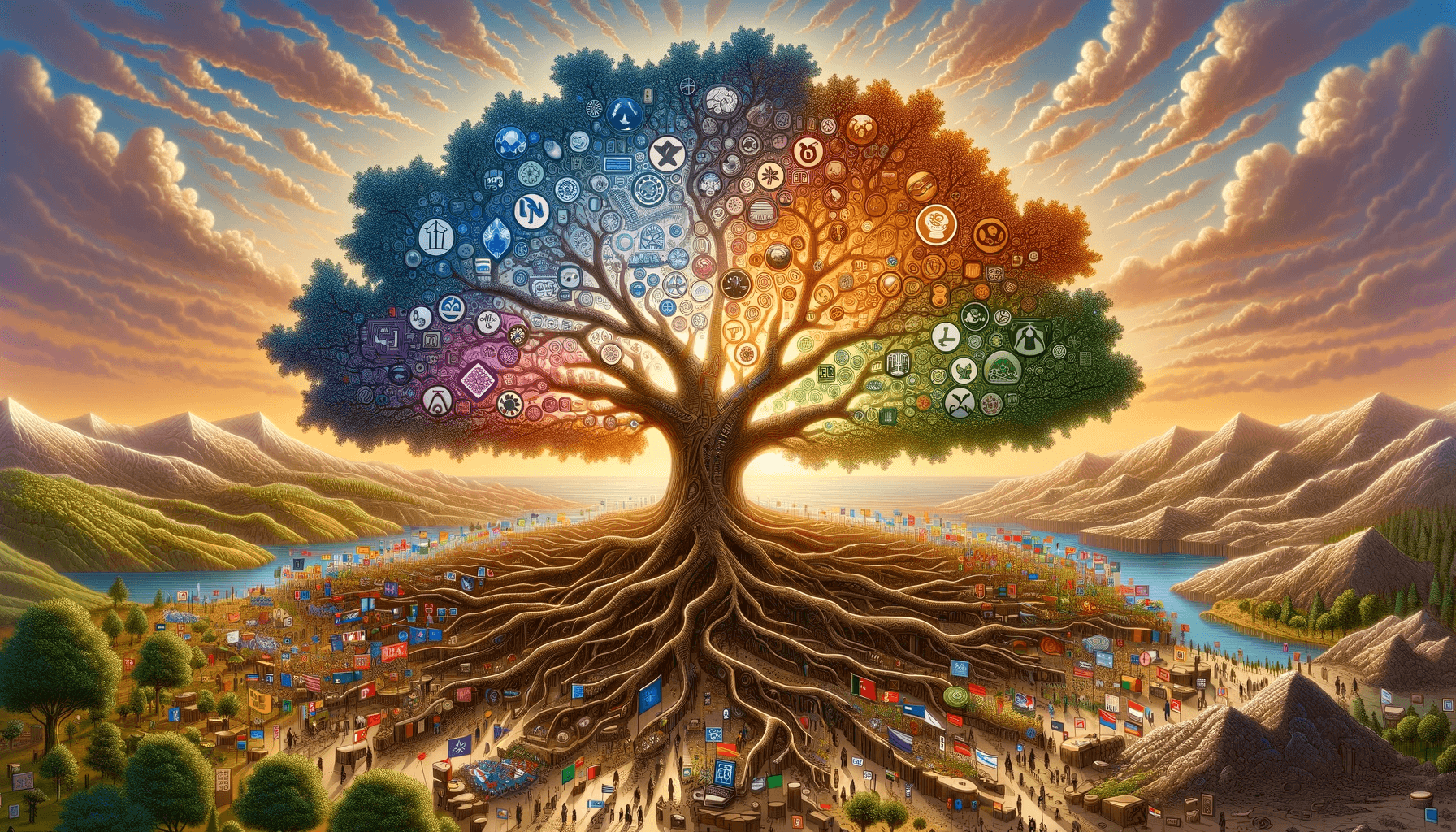Sponsor Goal Setting Software for High Achievers
Table of Contents
What are political ideologies?
Political ideologies serve as guiding principles shaping how governments and societies function. They provide a framework for individuals to understand and navigate the complexities of political systems. This article will delve into the diverse spectrum of political ideologies, exploring their key principles and uncovering the fundamental differences that set them apart. By understanding these ideologies more deeply, we can better comprehend the dynamics of political discourse and decision-making.
Understanding the spectrum of political ideologies
Political ideologies can be understood as a spectrum, ranging from left to right. On the left side, we find ideologies that advocate for more government intervention and social equality, while on the right side, ideologies lean towards limited government intervention and individual liberties. This spectrum helps us visualize the differing perspectives on the role of government and societal organization.
Liberalism: Key principles and beliefs
Liberalism, rooted in individual liberty and equality principles, emphasizes the importance of personal freedoms and civil rights. Liberal ideologies promote the protection of human rights, representative democracy, and free market capitalism. Liberals believe in the power of government intervention to address social inequalities and provide a safety net for vulnerable populations. They advocate for progressive policies such as universal healthcare, affordable education, and environmental protection.
Conservatism: Key principles and beliefs
Conservatism, in contrast to liberalism, values tradition, stability, and limited government intervention. Conservatives prioritize individual responsibility and believe in preserving established institutions and societal norms. They advocate for free market capitalism, emphasizing the importance of personal freedom and limited government regulation. Conservatives often oppose progressive policies, arguing that they can lead to excessive government control and undermine traditional values.
Socialism: Key principles and beliefs
Socialism advocates for the collective ownership and control of resources and means of production. Socialists believe that wealth and resources should be distributed more equitably among society. They argue that capitalism perpetuates social inequalities and fosters exploitation. Socialist ideologies emphasize the importance of social welfare programs, public ownership of key industries, and income redistribution. They often oppose excessive accumulation of wealth by a few individuals or corporations.
Capitalism: Key principles and beliefs
Capitalism is an economic and political system centered around private ownership of resources and means of production. Capitalists believe in the free market, where prices and wages are determined through supply and demand. They argue that competition and individual pursuit of self-interest drive economic growth and innovation. Capitalism promotes entrepreneurship, private property rights, and limited government intervention in the economy. Supporters of capitalism contend that it provides individuals with the opportunity for upward social mobility and rewards hard work.
Communism: Key principles and beliefs
Communism seeks to create a classless society where resources and means of production are collectively owned. Communists argue that capitalism perpetuates social inequalities and exploitation. They advocate for abolishing private property and establishing a centralized government that administers resources based on the principle of “from each according to their ability, to each according to their needs.” Communism aims to eradicate social classes and create a society where everyone’s needs are met.
Fascism: Key principles and beliefs
Fascism is an authoritarian ideology that emphasizes the supremacy of the nation or race. Fascists reject individual freedoms and prioritize the interests of the state over individual rights. They advocate for a strong centralized government led by a dictator, often promoting nationalism, militarism, and censorship. Fascist ideologies often involve the suppression of minority groups and the use of propaganda to control public opinion.
Anarchism: Key principles and beliefs
Anarchism rejects the idea of a centralized government and advocates for the absence of hierarchy and authority. Anarchists believe that individuals should have maximum freedom to govern themselves and that society can function well through voluntary cooperation and mutual aid. While there are different schools of thought within anarchism, they all share a common desire for a society free from hierarchical structures and coercion.
Comparing and contrasting political ideologies
When comparing political ideologies, it is essential to analyze their core principles and the role they assign to government. Liberalism and conservatism, for example, differ in their approach to individual liberties and the extent of government intervention. Socialism and capitalism diverge in their beliefs about wealth distribution and the role of private ownership. Fascism and communism, though both authoritarian, have different focuses, with fascism emphasizing nationalism and communism prioritizing class struggle.
The influence of political ideologies in modern society
Political ideologies shape governments’ policies and decisions, influencing various aspects of society, such as healthcare, education, and the economy. They inform debates on social issues, economic systems, and the distribution of resources. Understanding these ideologies is crucial in comprehending the motivations behind political parties, the formulation of public policies, and the dynamics of political discourse.
Conclusion
Exploring political ideologies gives us a deeper understanding of the principles and beliefs underpinning different political systems. Liberalism, conservatism, socialism, capitalism, communism, fascism, and anarchism offer unique perspectives on the role of government, individual freedoms, and societal organization. By studying these ideologies, we can engage in informed discussions, contribute to the democratic process, and work towards creating a more inclusive and equitable society.
CTA: Whether you are a student, a political enthusiast, or simply curious about the dynamics of political ideologies, further exploration of these concepts can provide valuable insights into the world we live in. Take the time to delve into the principles and beliefs that shape our societies and engage in meaningful discussions that foster understanding and progress.






